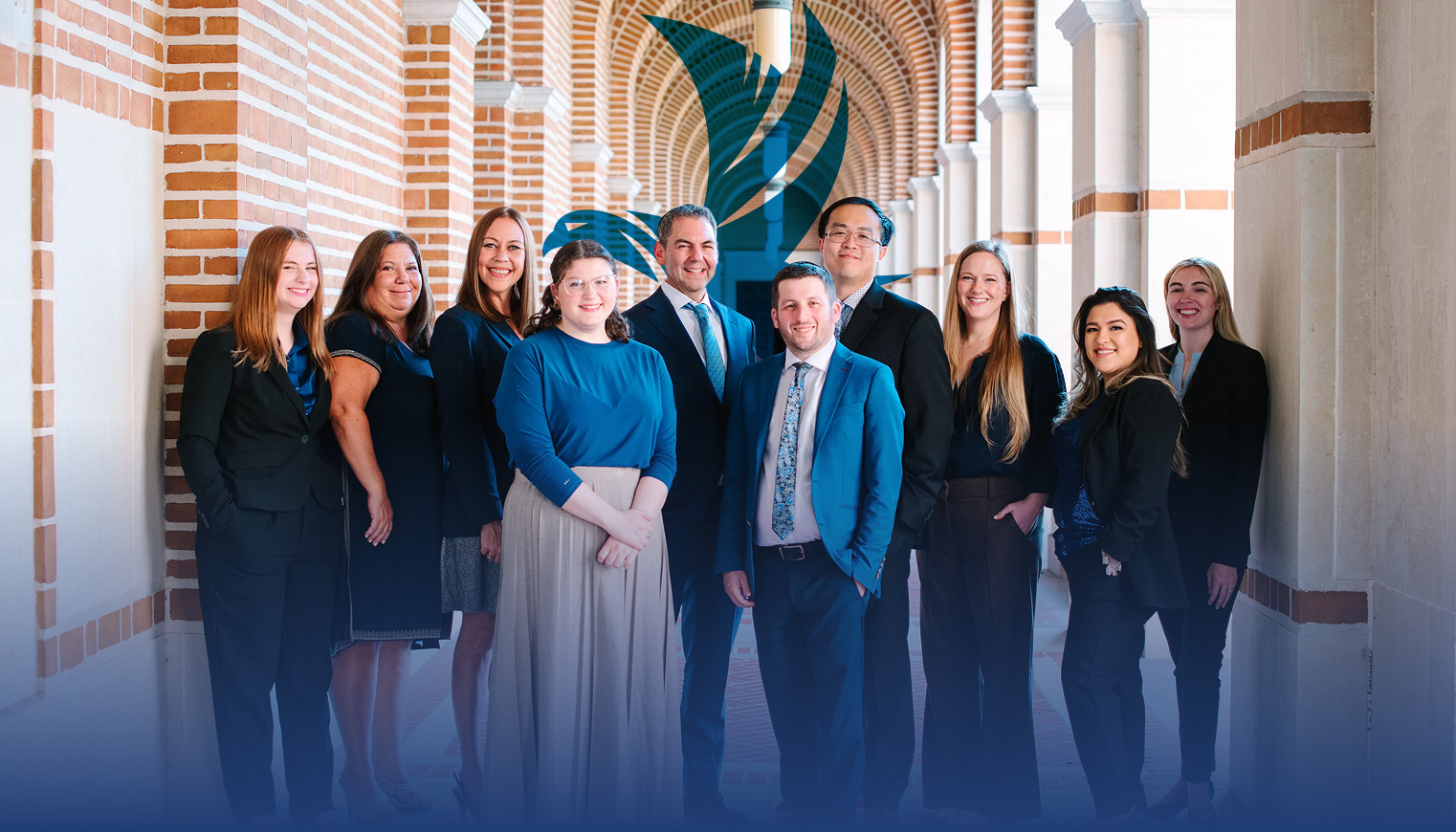Are You Eligible for SSDI Benefits in Illinois?
Determining your eligibility for SSDI benefits can feel like decoding a complex puzzle, particularly when dealing with a disabling condition. Key factors our Illinois attorneys evaluate to determine potential SSDI eligibility:
- Work credits and employment history: SSDI benefits are tied to your record of contributions to Social Security. Illinois applicants generally need to have worked a certain number of years and acquired enough credits based on age and work duration.
- Disabling condition: Your medical condition must meet the SSA’s definition of disability. It must be a severe impairment that prevents you from performing substantial gainful activity (SGA) for at least 12 continuous months or is expected to end in death.
- Functional capacity: Whether your disability prevents you from continuing your current work or adapting to new employment is a significant factor during eligibility evaluations.
- Claim history: Our team reviews past claims, denials, or appeals you’ve submitted to identify opportunities to strengthen future filings.
- Unique situations: Illinois workers with part-time employment histories or those classified as contractors often have complex SSDI eligibility. These cases require careful analysis of Social Security contributions and other qualifying elements.
Determining SSDI eligibility doesn’t have to be a guessing game. Learn how to recover the benefits you may be entitled to. Contact an Illinois Social Security Disability lawyer from Pines Federal to explore your legal options during a free case evaluation.
When To Contact Pines Federal About Your SSDI Claim
The moment you face the SSDI process is the right time to speak with an attorney. Every step can introduce obstacles that threaten your claim, so acting quickly can make a difference in your case.
SSDI Appeals
If your initial claim is denied, do not wait or try to handle the appeals process alone. The strict deadlines and detailed evidence requirements at every level are often where many applicants stumble. You should consider legal help if you need guidance with:
- Reconsiderations, where filing new documentation and corrections can give your case a second chance
- Administrative hearings before an Illinois-based Administrative Law Judge that demand preparation and knowledgeable representation
- Appeals Council reviews, which involve challenging a denial from a higher level within the SSA
- Federal district court cases requiring you to pursue your claim outside the SSA itself
The window to act after a denial is limited. Contacting a lawyer immediately will help you meet these critical timelines and protect your right to pursue benefits.
Denied SSDI Claims
A denial can feel like a dead end, but it is actually a common part of the claims process. Delays in response or incomplete appeals often lead to missed opportunities. We step in for clients who are up against:
- Insufficient medical documentation, when your case needs stronger or updated records from qualified providers
- Technical application errors, including mistakes in reported income, work credits, or paperwork
- Previously unsuccessful appeals, which may require fresh strategies and additional supporting evidence
Acting quickly after a denial means your case can stay active and your claim has another opportunity to move forward. Schedule a free case evaluation to learn how we may be able to assist with denied Social Security disability insurance claims.
Disability Cases for Medical and Mental Conditions
If your impairments impact your ability to work, even briefly, the details matter during the legal process. Consulting a lawyer at the earliest stage allows you to structure your application effectively. We handle claims related to the following:
- Persistent physical conditions, such as arthritis, carpal tunnel, or repetitive strain injuries
- Mental health diagnoses, including bipolar disorder, anxiety, and PTSD that affect function on the job
- Serious neurological or progressive illnesses, like Parkinson’s disease, epilepsy, or cancer
- Complex cases with multiple or combined conditions that require records from several doctors
By involving our team early, you position yourself to build a case that truly reflects the full effect of your health challenges on your ability to earn a living.
Supplemental Security Income (SSI)
SSI claims can be even more challenging than SSDI, particularly for those with variable work backgrounds or very limited income. If you or your dependents are considering SSI, contact us immediately for help with:
- Navigating financial need requirements and responding to resource or asset questions
- Coordinating simultaneous SSI and SSDI applications to maximize support under both programs
- Filing child or dependent claims and managing complex household situations
A quick consultation can be especially important where deadlines, financial reviews, and family needs overlap.
Initial SSDI Applications
From the beginning, applicants who work with a lawyer have the advantage of a stronger, clearer submission. First-time claimants may benefit from legal assistance if:
- New to the SSDI process and want guidance avoiding common pitfalls in their first filing
- Dealing with employment histories that do not fit traditional patterns, such as contract or seasonal work
- A younger worker with limited credits needing help demonstrating eligibility
- Managing paperwork for minors or adults as a family member or guardian
- Facing a disability involving both physical and mental challenges and needing help with integration of all necessary documentation
Contacting Pines Federal at the onset of an SSDI journey offers new applicants access to experienced legal professionals who work to guard against avoidable errors and strengthen a claim from day one.
Legal Challenges Illinois SSDI Applicants Face And How an SSDI Lawyer in Illinois Can Help
Differences in how claims are handled here, compared to other states, often surprise those who have recently relocated or don’t know the local Social Security offices. Frequent and problematic challenges in Illinois SSDI claims, along with how our legal team works to address them, include:
- Severe processing delays at SSA and DDS offices: Illinois wait times vary throughout the process. But we act quickly and submit organized, complete applications to help prevent unnecessary hold-ups.
- Difficulties accessing local SSA resources: Many Illinois field offices have limited in-person services and rely heavily on online or phone systems, making it tough for those with disabilities or complex paperwork to get support. Our team connects clients with the right channels and helps prepare all necessary documentation to avoid bureaucratic pitfalls.
- Variability in Administrative Law Judge decisions: Different hearing offices may emphasize different aspects of a claim. Our experience with hearings in Illinois allows us to prepare you and your case evidence for the specific legal arguments you will face.
- Income documentation issues for gig and contract workers: The rise of Illinois’ gig economy has left many claimants struggling to prove work history or earnings, especially when self-employment taxes or proper documentation are missing. We help review, compile, and present evidence that strengthens claims for those who engage in qualified, substantial gainful activity.
- Confusion About State-Specific Processes and Benefits: While SSDI is a federal program, certain aspects of the process, especially with benefits or appeals, could be different from what an applicant may have experienced in other states. Our team explains every step and clarifies how Illinois-specific rules may affect your claim.
With Illinois setting its own pace and procedures for disability claims, legal support can help applicants avoid unexpected setbacks and pursue their benefits with greater clarity and confidence, especially when adjusting to new hurdles and evolving rules across the state.
Pursuing the Full SSDI Benefits You Deserve
Securing every dollar you are eligible for matters. With an aggressive approach and a deep understanding of Illinois SSDI laws, our attorneys actively pursue the full range of benefits the law provides, including:
- Maximum monthly SSDI payments: The SSA calculates your monthly payment based on your lifetime average earnings covered by Social Security. While the maximum possible federal benefit in 2025 is $4,018 per month, most recipients receive a lower amount based on their work record. We work to correctly calculate your benefit.
- Back pay and retroactive Benefits: You may receive back pay for the months between your application approval and when you start receiving payments. You may also qualify for retroactive benefits for the months you were disabled before you even applied. Our team reviews your records to establish the earliest possible disability onset date.
- Medicare coverage: After 24 months on SSDI, you may enroll in Medicare. We can help you understand what’s needed so there is no significant disruption to ongoing medical costs.
- Benefits for your family: Eligible dependents, including children and spouses, may qualify for additional support. We position your case to capture every benefit your household can receive.
When you have experienced legal advocates fighting in your corner, you move closer to securing all benefits you may be owed to you under the law. Our goal is to maximize what you take home because you and your family deserve every advantage available.
Illinois Social Security Disability Lawyer FAQs
What medical conditions qualify for SSDI in Illinois?
Eligibility for SSDI depends on having a severe impairment that prevents you from working for at least 12 months. The SSA reviews both physical and mental health conditions. Pines Federal can help present clear, comprehensive evidence tailored to SSA requirements for your specific diagnosis.
Can I get Social Security Disability if I worked as a freelancer or gig worker in Illinois?
Eligibility may be possible. Legal help can be crucial in gathering proper income and work documentation to build a solid case for benefits. Contact Illinois SSDI lawyers from Pines Federal to understand if your freelance or gig work activity qualifies you for benefits under the law.
Will receiving SSDI affect my eligibility for other benefits like Medicaid or SNAP?
SSDI benefits can impact other programs. SSDI recipients in Illinois may also qualify for state or federal assistance such as Medicaid or SNAP. An experienced SSDI disability lawyer will explain how your award might interact with other support and help you plan accordingly to avoid surprises.
What do I do if I miss my SSDI appeal deadline in Illinois?
Missing a deadline is frustrating but not always the end. You may still have legal avenues if you can show good cause for the delay. Promptly consulting our Illinois SSDI attorneys may help increase your chance of reinstating a right to appeal and keeping your claim on track.
What is the difference between SSDI and Supplemental Security Income (SSI)?
SSDI is an insurance program for individuals who have worked and paid Social Security taxes for a sufficient amount of time. Your benefit amount connects to your past earnings.
SSI is a needs-based program for disabled children and adults with very limited income and resources, regardless of their work history.
You may qualify for one or both programs.
How do I pay for a Social Security Disability lawyer?
We handle Social Security Disability cases on a contingency fee basis. This means you pay no attorney fees unless we win your case. The fee is then paid directly from your back pay award and is limited by federal law to 25% of your past-due benefits, or $7,200, whichever is less.
What should I expect at an Administrative Law Judge (ALJ) hearing?
An ALJ hearing is a private, informal proceeding, not a formal trial. You will appear before a judge to answer questions about your medical conditions, work history, and daily limitations.
The judge may also ask questions of a vocational expert or a medical expert. We will prepare you for the hearing, present your evidence, and make legal arguments on your behalf.
How long does it take to decide an SSDI claim in Illinois?
Wait times vary significantly. We file a complete and timely case to avoid any preventable delays from your end.
Pines Federal | Ready to Fight for Your Illinois SSDI Benefits
Eric Pines, Illinois Social Security Disability Lawyer
When your financial future is on the line, you need a legal team that stands up for your rights and pursues every dollar the law allows.
At Pines Federal, we go beyond paperwork. Our Illinois SSDI attorneys provide relentless advocacy and strategic guidance to recover the maximum benefits you are eligible for under the law.
Don’t risk a lengthy process that burdens you physically and financially. Contact an experienced Illinois Social Security Disability attorney from Pines Federal online or at (866) 501-6716 for a free case evaluation that explores your rights and legal options.





 Eric Pines Attorney
Eric Pines Attorney Amanda Moreno Attorney
Amanda Moreno Attorney Jadyn Marks Attorney
Jadyn Marks Attorney Michael Kleinman Attorney
Michael Kleinman Attorney Elliott Cin, Of Counsel Attorney
Elliott Cin, Of Counsel Attorney Menucha Slater Legal Assistant
Menucha Slater Legal Assistant Raquel Olmos Intake Specialist
Raquel Olmos Intake Specialist Aaron Sacks Bookkeeper, Marketing
Aaron Sacks Bookkeeper, Marketing Trinity Buchanan Attorney
Trinity Buchanan Attorney Michal Solomon Intern
Michal Solomon Intern Ari Rosen Paralegal, OPM Supervisor
Ari Rosen Paralegal, OPM Supervisor Nicole Marquadt Paralegal, OPM Specialist
Nicole Marquadt Paralegal, OPM Specialist Michelle Cerrato Disability Specialist, OPM Specialist
Michelle Cerrato Disability Specialist, OPM Specialist Charles Wiesel Paralegal, OPM Specialist
Charles Wiesel Paralegal, OPM Specialist Courtney Bolton SSDI Supervisor
Courtney Bolton SSDI Supervisor Asher Meir Pines Legal Assistant
Asher Meir Pines Legal Assistant Steven Tu Operations Manager
Steven Tu Operations Manager











